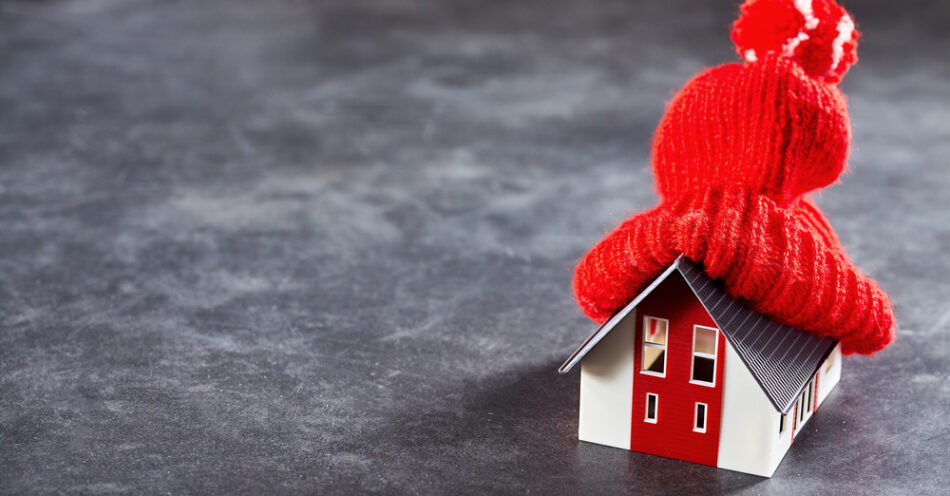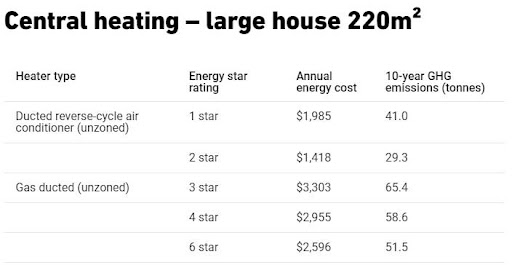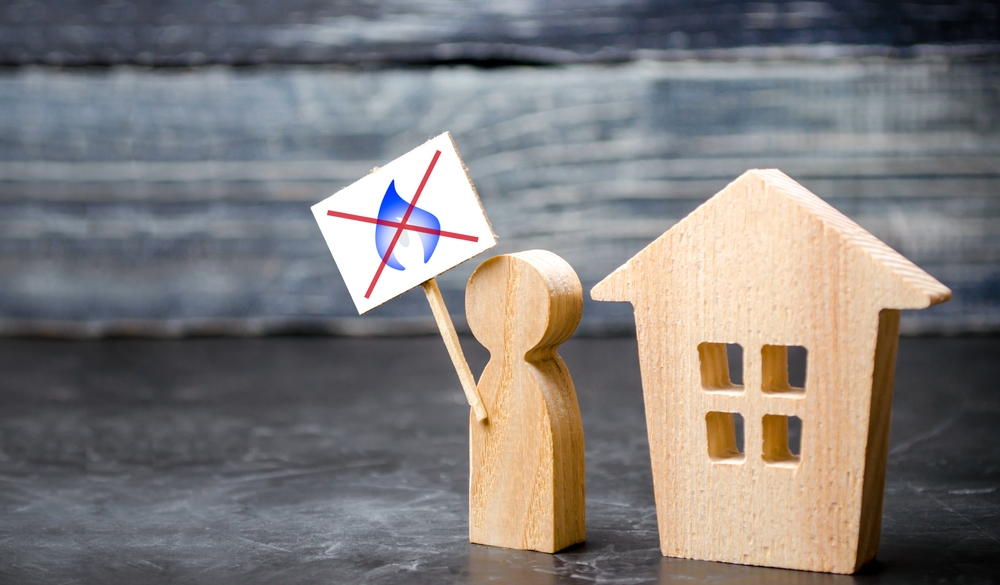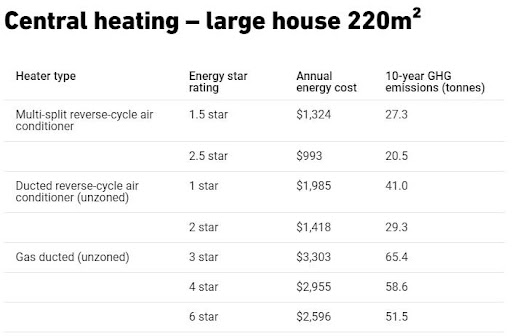
If you want ducted heating in your Melbourne home, you have two main options to consider:
To an extent, the best option for you will come down to personal preference, but when you look at the bigger picture, there is a “best” option, and that’s reverse cycle heating.
However, you shouldn’t rule out ducted gas heating altogether.
In this article, we’re going to explain why we believe reverse cycle systems are number one, and we’ll also provide a fair explanation of each system’s benefits, similarities, and differences.
What’s the cheapest way to heat your home? It’s complicated.
To get the true answer, you need to look at your gas and electricity prices, the size and efficiency of your heater, zoning capabilities, and the size of your home (to name just a few).
According to the Comparison site Finder, gas remains marginally cheaper overall for households despite it taking 3.6MJ of gas consumption to generate the equivalent of 1KWh of electricity.
However, when it comes to heating, gas heaters can experience around 50% energy loss while in operation. This means that for every unit of energy put into the system, only about half of that is being used to heat the home while the rest escapes through exhausts, ductwork, etc.
In comparison, reverse cycle systems boast 300-600% efficiency, meaning one unit of electrical energy could generate 6 times as much heat.
According to Sustainability Victoria, this means a 1-star reverse cycle system could provide cheaper central heating than a 6-star gas ducted system (in a 220m2 home).

So, while the most expensive heating option is an old-school portable electric heater, the modern electric heating options (reverse cycle/heat pump systems) can actually be far cheaper to run than gas.
In fact, reverse cycle air heating may actually be the cheapest option. This is especially the case if you have invested in solar energy (keeping in mind that solar panels can come with hefty upfront costs).
You will need to know:
To calculate hourly costs for gas ducted heaters: Multiply the tariff rate by megajoules per hour (MJ/h) for an hourly running cost.
To calculate hourly costs for reverse cycle heaters: Multiply the tariff rate by the kilowatts (kW) for an hourly running cost.
The cost of supplying and installing a ducted system – whether it’s gas or heat pump – will depend on your specific requirements. This includes the number of outlets required, the size of the system, and any other complicating factors.
In general, gas ducted heaters will be cheaper to supply and install, with an average cost of 3,000 to $7,000 or more.
Reverse cycle ducted heaters have average supply and installation costs ranging from $6,000 to $12,000 or more.
Most properties are connected to electricity, but fewer are connected to gas. If you need to add a gas connection to your home, this will significantly increase the cost of gas ducted heating in Melbourne.

If you’re installing a new HVAC system, it’s important to consider how widely used your system will be in years to come.
As it turns out, gas systems and reverse cycle systems are on opposite trajectories.
Australia is reducing its reliance on gas:
Meanwhile, clean electricity is becoming a priority:
So, if you’re looking for a new central heating system, particularly if you are building a new home, it could be wise to invest for the future and opt for a reverse cycle unit.
Need new heating. Here’s why you should consider reverse cycle air conditioning in Box Hill, Ringwood, and all surrounding areas:
1. Affordable, energy-efficient heating and cooling in one system
2. No risk of carbon monoxide poisoning, which can occur with faulty gas systems
3. Lower maintenance requirements than gas systems due to fewer safety risks
4. Up to 600% energy efficiency, compared to less than 100% for gas ducted units
5. Extra modern features compared to gas systems, like air purification technology, dehumidifiers, and inverters
6. The environmentally friendly option, producing around 2/3rds less greenhouse gas emissions than gas systems
7. Whisper-quiet compared to gas systems, especially older ducted heaters!
There are definitely still areas where gas heaters outstrip modern heat pump systems, such as:
1. Faster heating of your property compared to reverse cycle air conditioners
2. Greater efficiency in particularly cold climates
3. Many people prefer the feeling of gas heating, considering it to be more gentle, comfortable heat!
This article is about comparing central heating systems, but what if you can’t install a ducted system? In some cases, a property may have inadequate ceiling or underfloor space for ductwork, and in other cases, the homeowner might be looking for a solution for a single room.
Split systems are among the most popular option for heating and cooling in Mooroolbark, Blackburn, and across Melbourne, and they solve this problem perfectly!
These units offer space heating, meaning they are designed for use in one room only. They’re also easy to install, with just a few wires and pipes needed to connect an indoor unit to an outdoor unit.
Best of all, most modern split systems utilise reverse cycle heat pump technology for efficient heating and cooling, just like their ducted counterparts.
If you want to add climate control to a bedroom or living area, a single reverse cycle split system could be ideal.
If you’re looking for whole-home climate control but your property can’t accommodate ductwork, consider a multi-split system setup. This allows you to install multiple indoor split units that are powered by one outdoor unit, resulting in effective heating throughout your home. This increases installation difficulty slightly, but it’s well worth the effort.
So, what is cheaper to run, gas ducted heating or a split system?
When we look at the same graph from Sustainability Victoria, we can see that the 2.5-star multi-split system actually has the lowest annual energy cost of the three discussed in this article!

Interested in a single split system in Rowville, a multi-split system in Templestowe, or another heating and cooling solution in Melbourne? Australian Climate Systems can help you!
Do you want the best indoor temperatures with efficient, effective, and affordable heat output? At Australian Climate Systems, we recommend reverse cycle heating.
Choose a reverse cycle ducted unit for a central heating option or opt for a split system to get affordable heating in a single room. Thanks to heat pump technology, these reverse cycle units will also cool your home in summer!
However, if you’re only looking for a heating unit and you want strong energy performance with quick, comfortable heat output, a gas furnace remains a quality option.
Ducted gas heaters may experience some energy loss, but the top models are still very efficient heaters that have been incredibly popular in Melbourne for many years. Just keep in mind that the environmental impact of natural gas heaters and the move towards electric appliances might cause these heaters to become less common as the years go on.